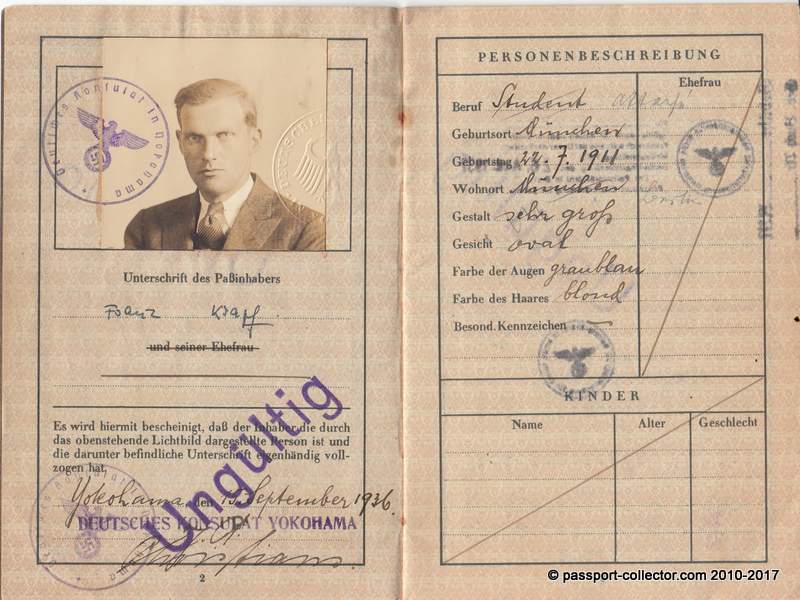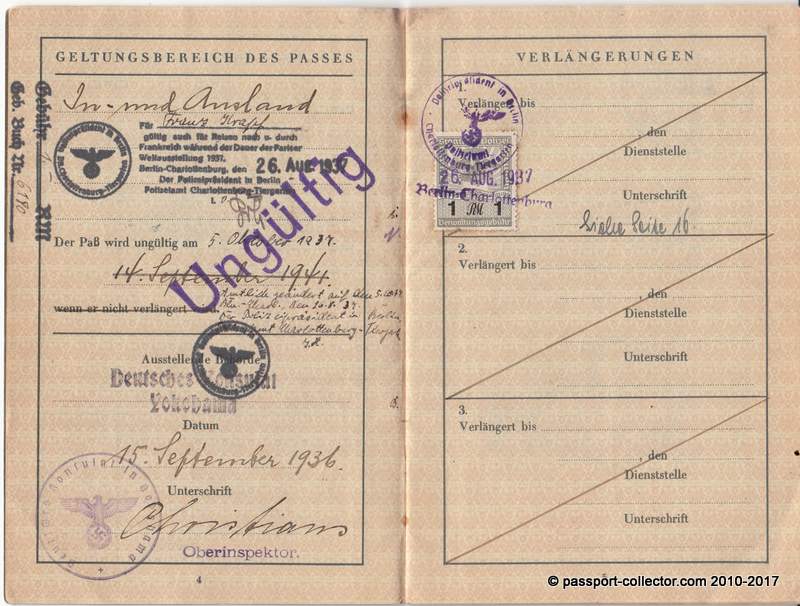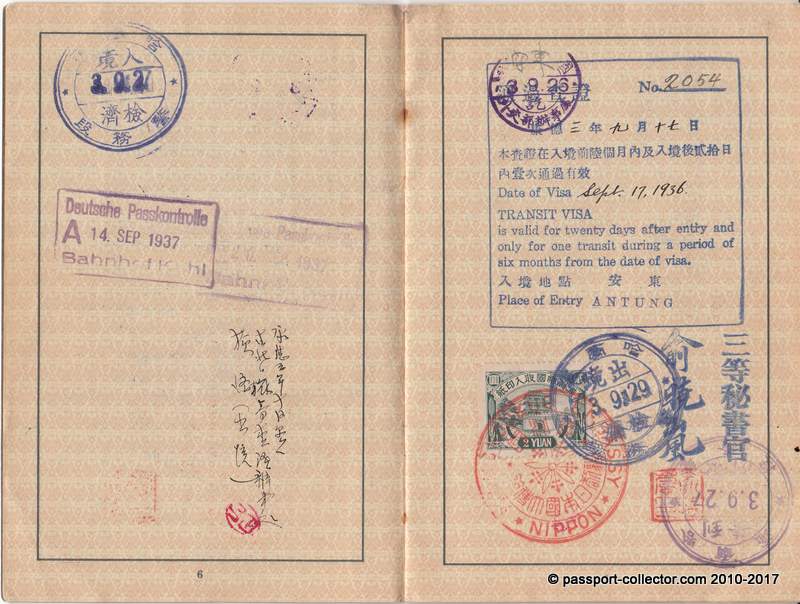German Diplomat Franz Krapf Passport – Das Amt und die Vergangenheit
German Diplomat Franz Krapf Passport
Meet Franz Krapf from Munich, Germany. His passport was issued in Sep 1936 at the German consulate in Yokohama, Japan and according to the entries in the document, he was “very tall” and “blond”. The consulate issued him the travel document in Japan with the ordinary validity of five years (till 1941) but it is obvious that after his return to Germany the validity was reduced to just one year (till 1937) by the passport office (police station) in Berlin. That’s quite interesting as I never saw such a document before, where the validity was reduced. I can only speculate why they did so. However, he got another extension as documented on page sixteen, till end Oct 1938, including validity for Austria. While researching more about Franz Krapf I found astonishing facts…
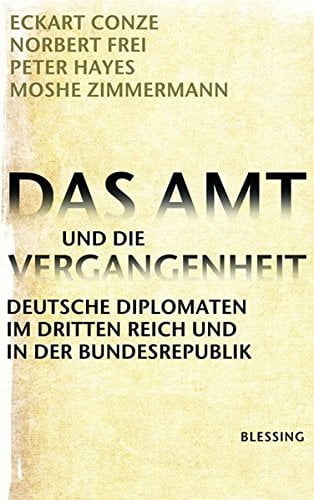
Franz Krapf (* 22 July 1911 in Munich;† 23 October 2004 in Bonn) was a German diplomat. After school, Krapf studied political science at the Ludwig-Maximilians-University of Munich, the Friedrich-Wilhelms-University of Berlin and the Amherst College in Massachusetts. In 1935 he passed his state examination at the Ludwig-Maximilians-University. He then studied Japanese at the Department of Oriental Languages at the Friedrich Wilhelm University and, between 1935 and 1937, with a scholarship to study Japanese language and law at the Imperial University of Tokyo. After his return in 1937, he took his diploma examination at the Department of Oriental Languages.
According to Krapf statement on August 1950, he became a member of the “SA/SS-Reitersturm Charlottenburg” in 1933 and a member of the NSDAP in 1936. In fact, he was admitted to the General SS in May 1933 under the membership number 102283 and was promoted to SS-Untersturmführer in the SD-Hauptamt on 1 February 1938, not in the SS-Hauptamt, as Krapf had also stated in August 1950. In May 1944, the head of the security police told the SS-Personalhauptamt that Krapf, along with four other members of the Federal Foreign Office, was a volunteer employee of the Reichssicherheitshauptamt and was constantly involved in the work.
On 1 February 1938, he joined the diplomatic service of the Foreign Office and first worked at the embassy in Egypt and then in the Soviet Union. During the Second World War, he served as Legation Secretary at the Embassy in Japan from 1940 to 1945. From 1940 on he was an officer of the Sicherheitsdienst (SD) of the SS at the embassy in Tokyo. His exact duties remain hidden, however, it was clear that even in Far East German diplomats were involved in the “Endlösung”. After the war, (1947) he worked as a merchant first in Germany and Sweden and then from 1948 to 1950 in Japan. In May 1948, Krapf was nevertheless classified as a member of the group of “exonerated” persons in a denazification trial before the Munich III High Court.
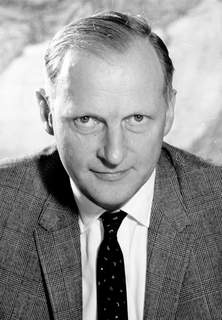
After the foundation of the Federal Republic of Germany, he returned in 1950 and became a speaker for America at the Press and Information Office of the Federal Government. In this capacity, he was a member of the German delegation to the Schuman Plan negotiations in Paris in May 1950. At the beginning of 1951, he became a member of the newly founded Federal Foreign Office and shortly afterward the Consul General in Paris, Wilhelm Hausenstein. Later he was an envoy at the Embassy in Washington and until 1966 head of the East Department at the Federal Foreign Office. In 1966 he was appointed Ambassador to Japan. German Diplomat Franz Krapf
After five years in Tokyo, he became NATO’s Ambassador and Permanent Representative to NATO in Brussels in 1971. He held this post until his retirement in 1976 when Rolf Friedemann Pauls succeeded him as Permanent Representative. After his death, an ongoing controversy arose in the Federal Foreign Office over the past, because Foreign Minister Joschka Fischer and Franz Krapf refused for the first time to honor a deceased ambassador with an NSDAP and SS past in an internal official newsletter and “broke through decades of commemorative practice”. The accusations made against him were, however, relativized by Erich Kord’s written statements of October 10, 1947, which later became known and which brought Krapf close to the resistance against Hitler.
The German daily newspaper DIE WELT has here a detailed article from 2005 about Krapf with the title “Ambassador Franz Krapf takes on a new light,” which has most exciting details about his past and his resistance against Hitler.

So, if you get a collectible on your table ALWAYS do some research and then you might find, like me today, something unexpected and of historic value. Franz Krapf’s biography was a key factor to write a scientific 900 pages strong book about the German foreign office and his diplomats in the Third Reich and Federal Germany. A significant document and I am glad to found it.
German Diplomat Franz Krapf Passport
FAQ Passport History
Passport collection, passport renewal, old passports for sale, vintage passport, emergency passport renewal, same day passport, passport application, pasaporte passeport паспорт 护照 パスポート جواز سفر पासपोर्ट
1. What are the earliest known examples of passports, and how have they evolved?
The word "passport" came up only in the mid 15th Century. Before that, such documents were safe conducts, recommendations or protection letters. On a practical aspect, the earliest passport I have seen was from the mid 16th Century. Read more...
2. Are there any notable historical figures or personalities whose passports are highly sought after by collectors?
Every collector is doing well to define his collection focus, and yes, there are collectors looking for Celebrity passports and travel documents of historical figures like Winston Churchill, Brothers Grimm, Johann Wolfgang von Goethe. Read more...
3. How did passport designs and security features change throughout different periods in history, and what impact did these changes have on forgery prevention?
"Passports" before the 18th Century had a pure functional character. Security features were, in the best case, a watermark and a wax seal. Forgery, back then, was not an issue like it is nowadays. Only from the 1980s on, security features became a thing. A state-of-the-art passport nowadays has dozens of security features - visible and invisible. Some are known only by the security document printer itself. Read more...
4. What are some of the rarest and most valuable historical passports that have ever been sold or auctioned?
Lou Gehrig, Victor Tsoi, Marilyn Monroe, James Joyce, and Albert Einstein when it comes to the most expensive ones. Read more...
5. How do diplomatic passports differ from regular passports, and what makes them significant to collectors?
Such documents were often held by officials in high ranks, like ambassadors, consuls or special envoys. Furthermore, these travel documents are often frequently traveled. Hence, they hold a tapestry of stamps or visas. Partly from unusual places.
6. Can you provide insights into the stories behind specific historical passports that offer unique insights into past travel and migration trends?
A passport tells the story of its bearer and these stories can be everything - surprising, sad, vivid. Isabella Bird and her travels (1831-1904) or Mary Kingsley, a fearless Lady explorer.
7. What role did passports play during significant historical events, such as wartime travel restrictions or international treaties?
During war, a passport could have been a matter of life or death. Especially, when we are looking into WWII and the Holocaust. And yes, during that time, passports and similar documents were often forged to escape and save lives. Example...
8. How has the emergence of digital passports and biometric identification impacted the world of passport collecting?
Current modern passports having now often a sparkling, flashy design. This has mainly two reasons. 1. Improved security and 2. Displaying a countries' heritage, icons, and important figures or achievements. I can fully understand that those modern documents are wanted, especially by younger collectors.
9. Are there any specialized collections of passports, such as those from a specific country, era, or distinguished individuals?
Yes, the University of Western Sidney Library has e.g. a passport collection of the former prime minister Hon Edward Gough Whitlam and his wife Margaret. They are all diplomatic passports and I had the pleasure to apprise them. I hold e.g. a collection of almost all types of the German Empire passports (only 2 types are still missing). Also, my East German passport collection is quite extensive with pretty rare passport types.
10. Where can passport collectors find reliable resources and reputable sellers to expand their collection and learn more about passport history?
A good start is eBay, Delcampe, flea markets, garage or estate sales. The more significant travel documents you probably find at the classic auction houses. Sometimes I also offer documents from my archive/collection. See offers... As you are already here, you surely found a great source on the topic 😉
Other great sources are: Scottish Passports, The Nansen passport, The secret lives of diplomatic couriers
11. Is vintage passport collecting legal? What are the regulations and considerations collectors should know when acquiring historical passports?
First, it's important to stress that each country has its own laws when it comes to passports. Collecting old vintage passports for historical or educational reasons is safe and legal, or at least tolerated. More details on the legal aspects are here...
Does this article spark your curiosity about passport collecting and the history of passports? With this valuable information, you have a good basis to start your own passport collection.
Question? Contact me...


